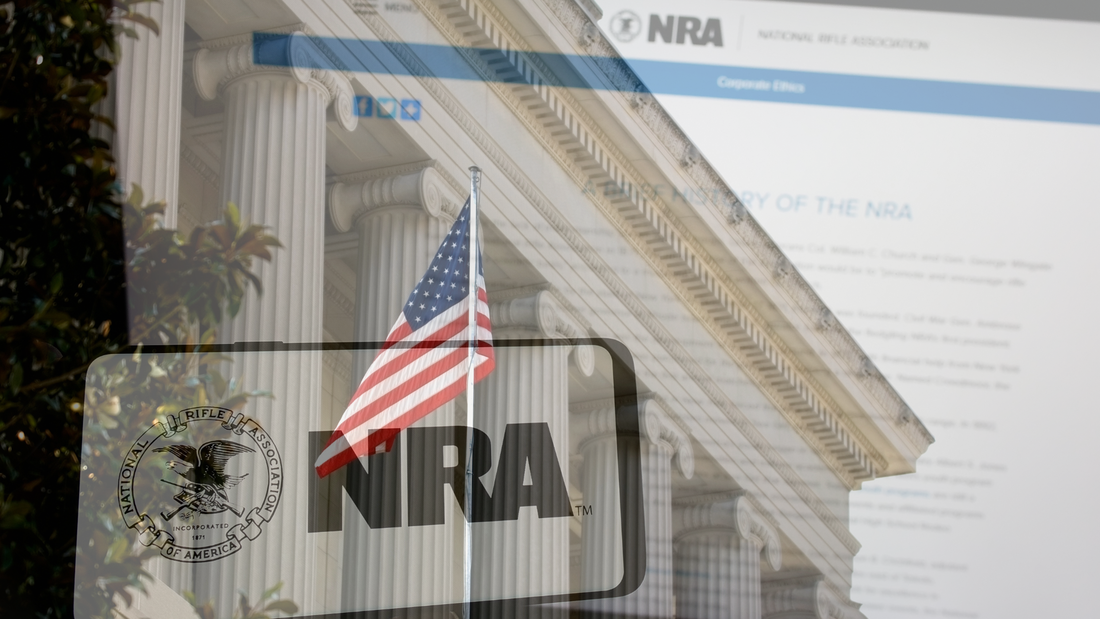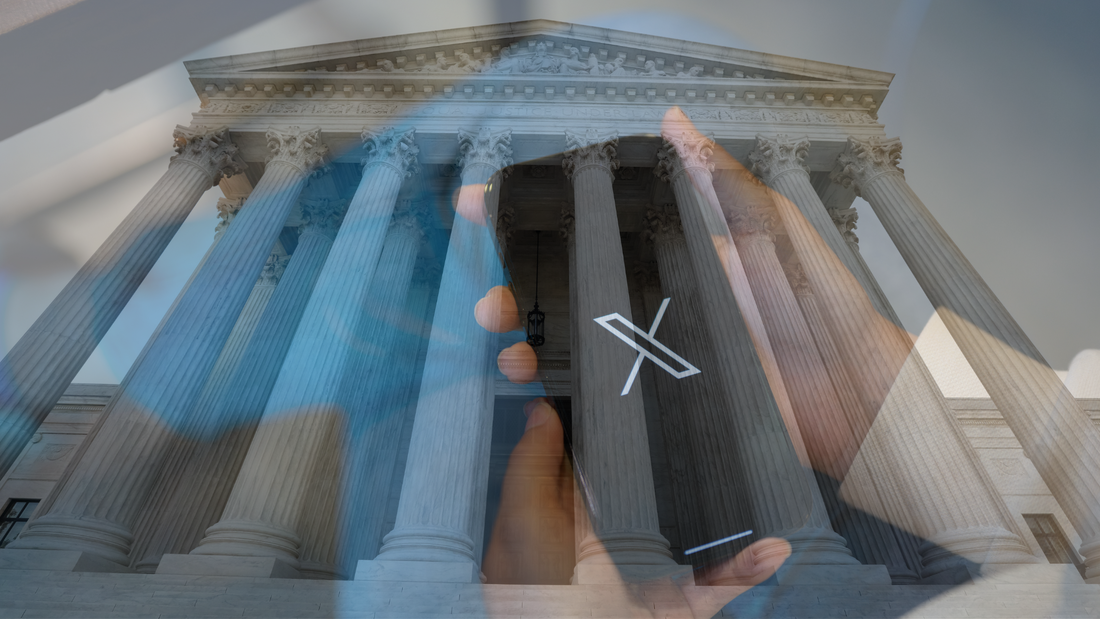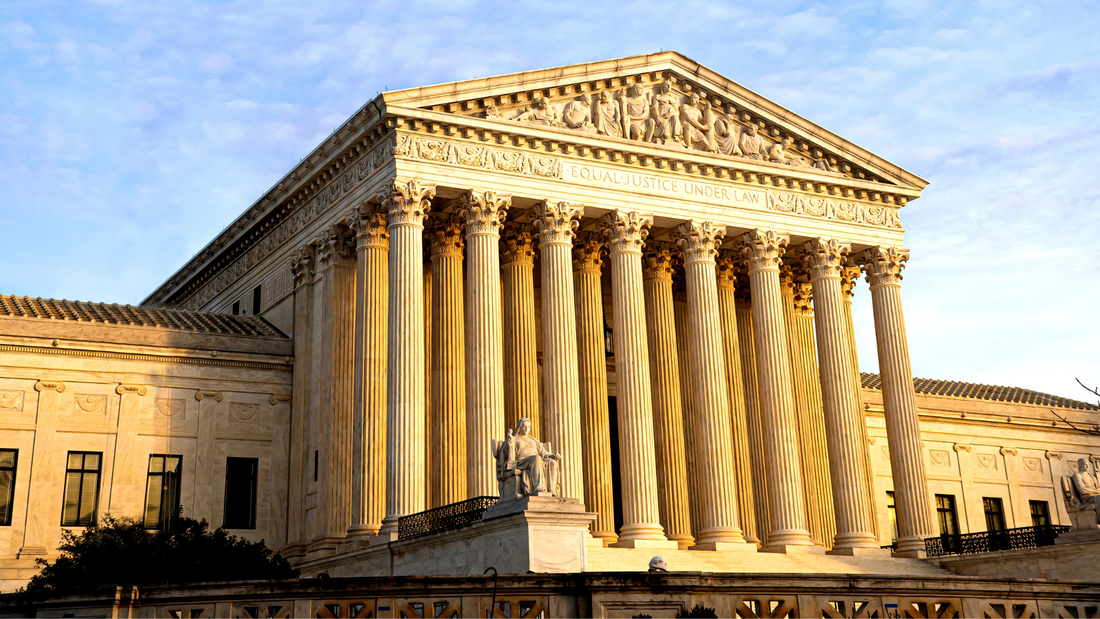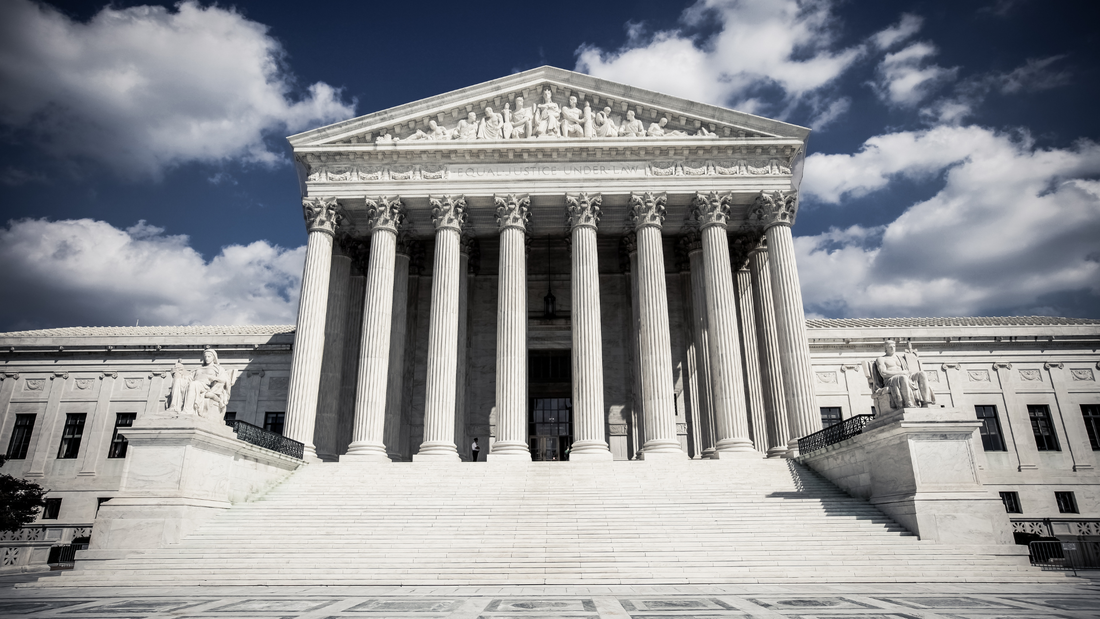PPSA Asks Supreme Court to Hear X Corp.’s Constitutional Case Against Surveillance Gag Orders7/10/2024
PPSA announced today the filing of an amicus brief asking the U.S. Supreme Court to take up a case in which X Corp., formerly Twitter, objects to surveillance and gag orders that violate the First Amendment and pose a threat to the Fourth and Sixth Amendments as well.
When many consumers think of their digital privacy, they think first of what’s on their computers and shared with others by text or email. But the complex, self-regulating network that is the internet is not so simple. Our online searches, texts, images, and emails – including sensitive, personal information about health, mental health, romances, and finances – are backed up on the “cloud,” including data centers like X Corp.’s that distribute storage and computing capacity. Therein lies the greatest vulnerability for government snooping. The growth of data centers is prolific, rising from 2,600 to 5,300 such centers in 2024. And with it, so have government demands for our data. When federal agencies – often without a warrant – seek to access Americans’ personal data, more often than not they go to the companies that store the data in places like these data centers. For years, this power involved large social media and telecom companies. The power of the government to extract data, already robust, increased exponentially with the reauthorization of FISA Section 702 in April, which included what many call the “Make Everyone a Spy Act.” This provision defines an electronic communication service provider as virtually any company that merely has access to equipment, like Wi-Fi and routers, that is used to transmit or store electronic communications. On top of that, the government then slaps the data center or service provider with a Non-Disclosure Order (NDO), a gag order that prevents the company from informing customers that their private information has been reviewed. One such company – X Corp. – has been pressing a constitutional challenge against this practice regarding a government demand for former President Trump’s account data. PPSA has joined in an amicus brief supporting X’s bid for certiorari, asking the Court to consider the constitutional objections to government conscription of companies that host consumers’ data as adjunct spies, while restraining their ability to speak out on this conscription. In the case of X, the government has seized the company’s records on customer communications and then slapped the company with an NDO to force it to shut up about it. The government claims this secrecy is needed to protect the investigation, even though the government itself has already publicized the details of its investigation. Whatever you think of Donald Trump, this is an Orwellian practice. PPSA’s amicus brief informed the Court that the gag order “makes a mockery of the First Amendment’s longstanding precedent governing prior restraints. And it will only become more frequent as third-party cloud storage becomes increasingly common for everything from business records to personal files to communications …” The brief informs the Court: “NDOs can be used to undermine other constitutionally protected rights” beyond the First Amendment. These rights include the short-circuiting of Fourth Amendment rights against warrantless searches and Sixth Amendment rights to a public trial in which a defendant can know the evidence against him. Partial solutions to these short-comings are winding their way through the legislative process. Sen. Mark Warner, Chairman of the Senate Intelligence Committee, introduced legislation to narrow the scope of businesses covered by the new, almost-universal dragooning of businesses large and small as government spies – though House Intelligence Chairman Mike Turner is opposing that reasonable provision. Last year, the House passed the NDO Fairness Act, which requires judicial review and limited disclosures for these restraints on speech and privacy. As partial solutions wend their way through Congress, this case presents a number of well-defined concerns best defined by the Supreme Court. National Rifle Association v. Vullo In this age of “corporate social responsibility,” can a government regulator mount a pressure campaign to persuade businesses to blacklist unpopular speakers and organizations? Would such pressure campaigns force banks, cloud storage companies, and other third parties that hold targeted organizations’ data to compromise their clients’ Fourth as well as their First Amendment rights?
These are just some of the questions PPSA is asking the U.S. Supreme Court to weigh in National Rifle Association v. Vullo. Here's the background on this case: Maria Vullo, then-superintendent of the New York Department of Financial Services, used her regulatory clout over banks and insurance companies in New York to strongarm them into denying financial services to the National Rifle Association. This campaign was waged under an earnest-sounding directive to consider the “reputational risk” of doing business with the NRA and firearms manufacturers. Vullo imposed consent orders on three insurers that they never again provide policies to the NRA. She issued guidance that encouraged financial services firms to “sever ties” with the NRA and to “continue evaluating and managing their risks, including reputational risks” that could arise from their dealings with the NRA or similar gun promotion organizations. “When a regulator known to slap multi-million fines on companies issues ‘guidance,’ it is not taken as a suggestion,” said Gene Schaerr, PPSA general counsel. “It’s sounds more like, ‘nice store you’ve got here, it’d be shame if anything happened to it.’” The U.S. Court of Appeals for the Second Circuit reversed a lower court’s decision that found that Vullo used threats to force the companies she regulates to cut ties with the NRA. The Second Circuit reasoned that: “The general backlash against gun promotion groups and businesses … could (and likely does) directly affect the New York financial markets; as research shows, a business's response to social issues can directly affect its financial stability in this age of enhanced corporate social responsibility.” You don’t have to be an enthusiast of the National Rifle Association to see the problems with the Second Circuit’s reasoning. Aren’t executives of New York’s financial services firms better qualified to determine what does and doesn’t “directly affect financial stability” than a regulator in Albany? How aggressive will government become in using its almost unlimited access to buy or subpoena data of a target organization to get its way? We told the Court: “Even the stability of a single company is not enough; the government cannot override the Bill of Rights to slightly reduce the rate of corporate bankruptcies.” In our brief, PPSA informs the U.S. Supreme Court about the dangers of a nebulous, government-imposed “corporate social responsibility standard.” We write: “Using CSR – a controversial theory positing that taking popular or ‘socially responsible’ stances may increase corporate profits – to justify infringement of First Amendment rights poses a grave threat to all Constitutionally-protected individual rights.” PPSA is reminding the Court that the right to free speech and the right to be protected from government surveillance are intwined. The Ninth Circuit Court of Appeals in March issued a controversial opinion in Twitter v. Garland that the Electronic Frontier Foundation calls “a new low in judicial deference to classification and national security, even against the nearly inviolable First Amendment right to be free of prior restraints against speech.”
X (née Twitter) is appealing this opinion before the U.S. Supreme Court. Whatever you think of X or Elon Musk, this case is an important inflection point for free speech and government surveillance accountability. Among many under-acknowledged aspects of our national security apparatus is the regularity with which the government – through FBI national security letters and secretive FISA orders – demands customer information from online platforms like Facebook and X. In 2014, Twitter sought to publish a report documenting the number of surveillance requests it received from the government the prior year. It was a commendable effort from a private actor to provide a limited measure of transparency in government monitoring of its customers, offering some much-needed public oversight in the process. The FBI and DOJ, of course, denied Twitter’s efforts, and over the past ten years the company has kept up the fight, continuing under its new ownership. At issue is X’s desire to publish the total number of surveillance requests it receives, omitting any identifying details about the targets of those requests. This purpose is noble. It would provide users an important metric in surveillance trends not found in the annual Statistical Transparency Report of the Office of the Director of National Intelligence. Nevertheless, in April 2020, a federal district court ruled against the company’s efforts at transparency. In March 2023, the Ninth Circuit upheld the lower court’s ruling, sweeping away a substantial body of prior restraint precedent in the process. Specifically, the Ninth Circuit carved out a novel exemption to long established prior restraint limitations: “government restrictions on the disclosure of information transmitted confidentially as part of a legitimate government process.” The implications of this new category of censorable speech are incalculable. To quote the EFF amicus brief: “The consequences of the lower court’s decision are severe and far-reaching. It carves out, for the first time, a whole category of prior restraints that receive no more scrutiny than subsequent punishments for speech—expanding officials’ power to gag virtually anyone who interacts with a government agency and wishes to speak publicly about that interaction.” This is an existential speech issue, far beyond concerns of party or politics. If the ruling is allowed to stand, it sets up a convenient standard for the government to significantly expand its censorship of speech – whether of the left, right or center. Again, quoting EFF, “[i]ndividuals who had interactions with law enforcement or border officials—such as someone being interviewed as a witness to a crime or someone subjected to police misconduct—could be barred from telling their family or going to the press.” Moreover, the ruling is totally incongruous with a body of law that goes back a century. Prior restraints on speech are the most disfavored of speech restrictions because they freeze speech in its entirety (rather than subsequently punishing it). As such, prior restraint is typically subject to the most exacting level of judicial scrutiny. Yet the Ninth Circuit applied a lower level of strict scrutiny, while entirely ignoring the procedural protections typically afforded to plaintiffs in prior restraint cases. As such, the “decision enables the government to unilaterally impose prior restraints on speech about matters of public concern, while restricting recipients’ ability to meaningfully test these gag orders in court.” We stand with X and EFF in urging the Supreme Court to promptly address this alarming development. The Colorado Supreme Court issued a 5-2 ruling that leaves an urgent privacy question wreathed in a cloud of ambiguity. As a result, Americans must worry that merely being in the same location as someone who might have done an internet search for suspicious material could end up with their own search data being examined by the police.
So-called “reverse warrants” are a powerful new type of search warrant enabled by the collection of Americans’ private data. Reverse warrants allow the police to sift through the search histories of thousands of people. They come in two types: geofence warrants, which allow police to identify people whose devices were in a certain area at a certain time, and reverse keyword warrants, which allow police to identify who searched certain keywords, phrases, or addresses online. These warrants and their underlying technologies allow police to track any person and search through their data. Instead of developing suspicions about a person based on factual evidence and then applying for a warrant to search that specific person – as required by the Fourth Amendment – reverse warrants involve looking through the search history or location history of many innocent people in the hopes of finding a suspect. Reverse warrants exist in legal limbo. There is little precedent or written law that govern this new form of data analysis. Accordingly, some courts have treated reverse warrants as they would any standard warrant. Seymour v. Colorado is the first case to address the constitutionality of reverse warrants. This case springs from a particularly heinous crime – an arson that killed a family of five. Two months later, the Denver Police Department obtained a reverse keyword warrant. As a result of the warrant, Google was forced to hand over the data of eight people, five of whom had Colorado-based IP addresses that had searched for the location of the arson in a two-week period before the crime. Three suspects were eventually charged. One of them, Gavin Seymour, sued to suppress evidence obtained by the warrant on constitutional grounds. The court held that “Seymour has a constitutionally protected privacy interest in his Google search history,” and that “Seymour’s Google search history implicates his right to freedom of expression.” The court also found that law enforcement obtained and executed the warrant in good faith, so the evidence shouldn’t be suppressed under the exclusionary rule. Thus the court acknowledged the serious constitutional issues at play and still treated the reverse warrant as if it was just an ordinary search. The court stated that “the warrant required individualized probable cause and that its absence here rendered the warrant constitutionally defective.” Yet, somehow, it was still admissible evidence. Five innocent people had their data searched. Another five innocent people were murdered in a fire. There is a lot at stake in this case, and a lot to unpack. Does a search of Google search histories by a given address satisfy the Constitution’s requirement for a particularized search? Can probable cause be asserted when the identity of the suspect is unknown? Could digital bystanders have evidence used against them from a search result unrelated to this particular crime? Perhaps this case will advance to the U.S. Supreme Court, which could take this opportunity to articulate boundaries and rules for future searches. We’ve seen, however, a time lag in the Court’s addressing of new technologies. Congress should consider taking measures to protect privacy in reverse warrants before the Supreme Court is forced to weigh in. Civil Libertarians Vow to Reform Section 702The U.S. Supreme Court today declined to hear Wikimedia v. NSA, a lawsuit challenging the mass, secret surveillance of Americans’ online communications.
The ACLU had gone to court to challenge a National Security Agency program under the Foreign Intelligence Surveillance Act (FISA), which the agency uses to continuously monitor international and domestic communications across the internet’s main pathways. “In analog terms, it’s as if government agents were opening the international letters passing through a U.S. post office en masse, reading the contents, and then keeping many of those letters in a file for years,” wrote Bob Goodlatte, PPSA Senior Policy Advisor and former Chairman of the House Judiciary Committee, in a recent op-ed. Goodlatte compared this intrusion by the government into American’s emails, web-browsing content, and search engine queries to the “general warrants” of the colonial era that had helped spark the American Revolution. “Worse, the government asserts that this case cannot even be litigated,” said Gene Schaerr, PPSA general counsel. “Under the government’s interpretation of the ‘state secrets’ doctrine, major surveillance programs of the government can never be litigated. “This denial shows all the more reason why Congress needs to step in and use the pending reauthorization of Section 702 – a principal surveillance authority in FISA – to close loopholes the government is exploiting.” The Supreme Court will consider whether to hear the Project for Privacy and Surveillance Accountability’s petition in Torcivia v. Suffolk County on Nov. 10.
The Second Circuit Court of Appeals ignored the obvious application of a SCOTUS ruling in Caniglia against the police for entering the home of a New York man to confiscate his guns on the basis of the “community caretaking” exception to the Fourth Amendment. The Second Circuit affirmed the right to do the same to another man in New York State on a similar, but more malleable “special needs” doctrine – which is essentially any priority the government deems important. PPSA hopes the Supreme Court grants its petition and takes this opportunity to reinforce the plain meaning of its ruling and the Fourth Amendment. Is a “special needs exception” to the Fourth Amendment much different from a “community caretaking exception?” PPSA filed a brief before the U.S. Supreme Court demonstrating that it is not.
The U.S. Supreme Court ruled in 2021 in Caniglia that the police acted improperly by entering a man’s home and confiscating his guns under the “community caretaking” doctrine – in which the police are making a “welfare check” rather than acting as law enforcement officers. The High Court saw through this precedent from the 1970s and ruled that supposedly “non-investigative” intrusions into a home are what they seem to be – plain violations of the Fourth Amendment. To the astonishment of many legal observers, the Second Circuit Court of Appeals ignored this unanimous Supreme Court opinion in a nearly identical case. In Torcivia v. Suffolk County, the Second Circuit applied a flexible “special needs exception” to the Fourth Amendment. One familiar example of this exception is when authorities decide that some local requirement, such as curbing drunk driving with spot checks, is necessary. But this case did not involve a car on the highway: it involved warrantless entry into a home and the confiscation of a citizen’s lawfully-owned firearms. The government responded to our petition for the Court to hear Torcivia with the straight-face argument that the community caretaking exception is not the special needs exception. No one claimed it was. But we told the Court that the “logic underlying the special needs exception is indistinguishable from the logic this Court rejected in Caniglia.” Our brief demonstrates to the Court that absent emergency circumstances or consent, if the “government can overcome the warrant requirement that has traditionally protected the home merely by pointing to an interest that the government feels is sufficiently strong, then the Fourth Amendment no longer serves as a meaningful limit on government power.” We added: “Respondents cannot escape that the Second Circuit applied the special needs exception to a seizure of firearms located in the home of a person not on probation or parole. That extension cannot be squared with this Court’s precedents or with the text, history, and tradition of the Fourth Amendment.” |
Categories
All
|








 RSS Feed
RSS Feed